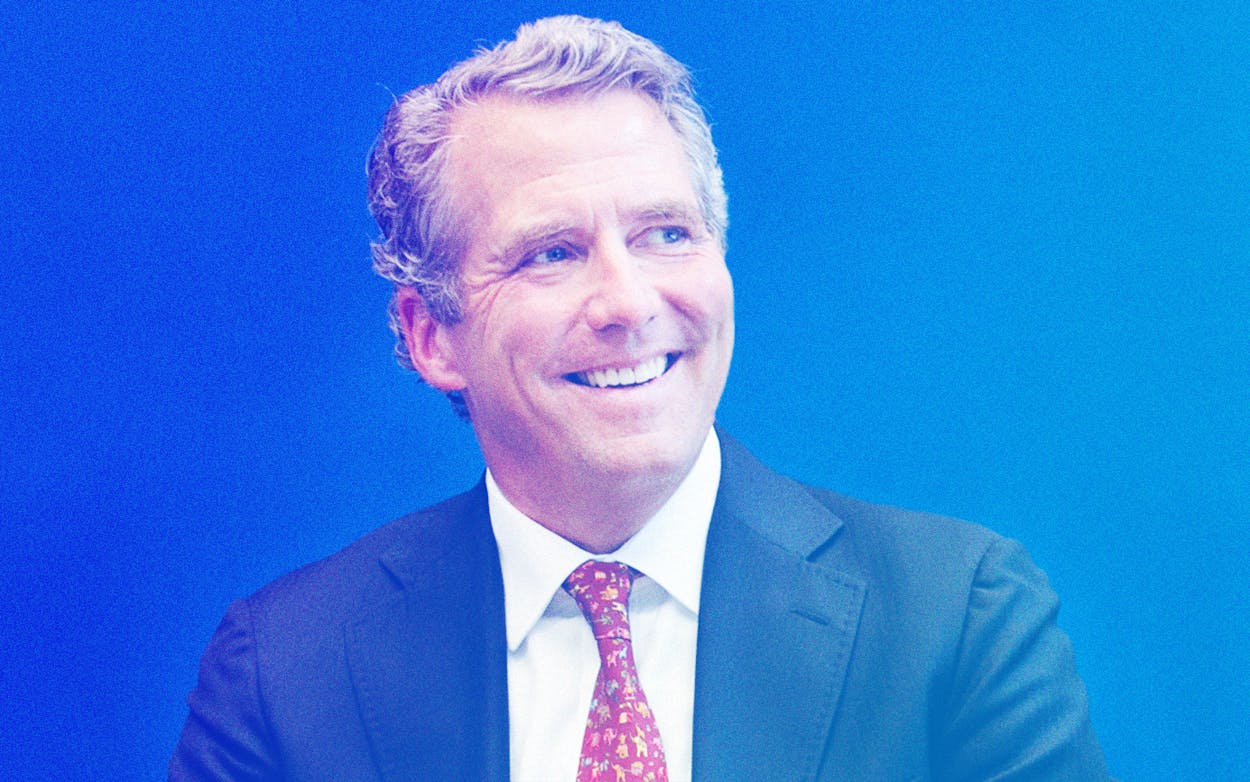Subscribe
This week’s National Podcast of Texas features James B. Milliken, who was named chancellor of the University of Texas system in September 2018. Milliken came to the fourteen-institution Texas system after a four-year run as chancellor of the City University of New York. Before that, the native Nebraskan served as president of the University of Nebraska system. Almost immediately after Milliken started the University of Texas system job, an internal task force report recommended the elimination of up to 110 full-time positions on the system administration level. In January, Milliken announced the first round of layoffs, cutting 65 positions. Another 65 positions were cut in March.
Three takeaways from his appearance on the National Podcast of Texas:
1. He says the recent college admissions scandal won’t just allow schools to focus more energy on safeguarding holes in their admissions process, but may also lead to a valuable discussion about economic inequity’s impact on the process.
“We’re looking at, and every one of our presidents is examining, admissions practices to make sure that a window that would allow for a bad actor to take advantage of it is closed. And it tapped a vein in the public consciousness that there is some unfairness, some rigging of the process where the wealthy do better than the rest of us and the people who can take advantage are taking advantage. To me, that’s the real issue. We need to do a better job in this country of providing a pathway for people who don’t have all the advantages.”
2. Milliken believes that higher education policy and initiatives have already emerged as key issues in 2020 presidential campaigns, which is good for colleges and universities overall.
“Those conversations give us more of an opportunity to deliver our message and to provide the evidence of what not just [people in higher education] but economists think is the essential nature of education, and what it ought to cost, and how well we’re doing our job at providing it. It should not all be lost on the binary questions—whether it’s free, or you forgive all debt or you don’t forgive debt. It’s a more nuanced and sophisticated conversation than that. But those arguments tee it up in a way that allow us to have a broader conversation with the American people about why this is so important and how we need to structure it.”
3. The University of Texas at Austin and A&M haven’t played each other in football since A&M moved to the Southeastern Conference. On a recent National Podcast of Texas, A&M president Michael K. Young said he believed they’d winds up meeting at a bowl game before a regularly scheduled game, but that efforts are being made to eventually properly align both team’s schedules. Milliken concurred.
“People miss the intrastate rivalry. And we’re working on it. Obviously, it’s not going to be next fall or the year after. These things are planned years in advance, but I think it’s a worthwhile thing for us to be focused on because the people of Texas want to see it happen.”






